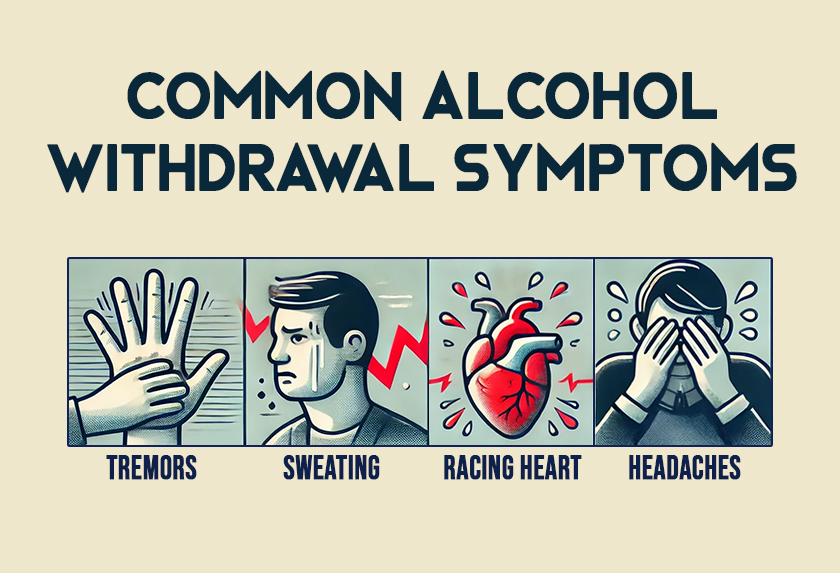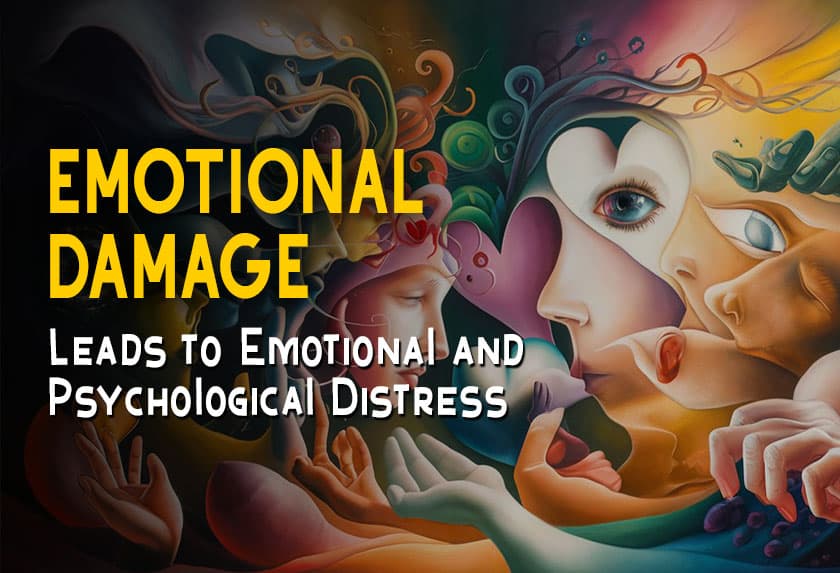Here’s a sobering statistic: 95% of people experiencing alcohol withdrawal symptoms report feeling blindsided by their intensity.
Taking that first step toward recovery is tough enough without the uncertainty of what comes next.
Whether you’re reading this for yourself or a loved one, you’re about to get a no-nonsense breakdown of the alcohol withdrawal timeline.
We’ll walk through everything from those first jittery hours to the moment you start feeling like yourself again.
Let’s cut through the medical jargon and get real about what you’re facing.
Understanding Alcohol Withdrawal
When your brain gets used to having alcohol around, it’s like having a really pushy houseguest who won’t leave without making a scene.
That’s alcohol withdrawal in a nutshell – your brain throwing a fit as it adjusts to life without booze. This isn’t just about willpower or “toughing it out.”
We’re talking about serious biological changes that need proper attention and respect.
Your body’s been playing a constant game of chemical catch-up while drinking.
Alcohol suppresses your nervous system, and your brain compensates by amping up certain chemicals.
When you stop drinking, these chemicals stay elevated for a while, causing withdrawal symptoms.
Think of it like a car with the gas pedal stuck – things can get intense pretty quickly.
Key points to remember:
- Withdrawal isn’t a sign of weakness – it’s your body healing
- Everyone’s withdrawal experience is different
- The timeline can vary based on drinking history
- Medical supervision isn’t just recommended – it can be crucial
Warning signs that demand immediate attention:
- Severe tremors that won’t stop
- Seeing or hearing things that aren’t there
- Severe confusion or agitation
- Racing heart or chest pain
- Fever above 101°F (38.3°C)
Withdrawal Timeline Estimator
Withdrawal Timeline
Note: This timeline is an approximation based on general patterns. Individual experiences may vary significantly. Always seek professional medical advice for accurate assessment and treatment.
Hour-by-Hour Alcohol Withdrawal Timeline
Let’s break down what happens when the last drink leaves your system.
Here’s the real deal – no sugar coating, just straight facts about what you might experience.
Remember though, everyone’s body writes its own story during withdrawal.
The First 6-12 Hours This is when the warmup act begins.
Your body’s starting to realize something’s different, and it’s not shy about letting you know.
You might notice your hands getting shaky – kind of like when you’ve had way too much coffee.
Some folks start feeling queasy, and that annoying headache might kick in.
It’s like your body’s hitting the reset button, and just like any reset, it can be a bit uncomfortable.
Think of withdrawal symptoms like waves – they come and go, getting stronger before eventually calming down.
During these first hours, you might experience:
- Mild anxiety (that pit-in-your-stomach feeling)
- Slight tremors, especially in your hands
- Headaches that come and go
- Sweating more than usual
- Trouble sleeping or feeling restless
12-24 Hours: When Things Get Real This is typically when the withdrawal symptoms start flexing their muscles.
Your body’s really figuring out that alcohol isn’t coming back, and it’s making adjustments – sometimes not so gracefully.
The anxiety might ramp up, and some people start feeling like they’ve got the world’s worst case of the flu.
Common symptoms during this period include:
- Increased blood pressure (your heart’s working overtime)
- Temperature fluctuations (hot one minute, chilly the next)
- Irritability (everything might feel annoying)
- Confusion or brain fog
- Loss of appetite
24-48 Hours: Peak Intensity Let’s be real – this is often the toughest part of the journey.
Your body’s in full rebellion mode, and this is when things can get serious.
During this window, about 5% of people might experience more severe symptoms.
This is why having medical backup is crucial, especially if you’ve been drinking heavily for a long time.
Major symptoms to watch for:
- Hallucinations (seeing or hearing things)
- Seizures (in severe cases)
- Extreme confusion
- High blood pressure spikes
- Severe tremors
48-72 Hours: The Turning Point Think of this as the beginning of the home stretch.
For many people, symptoms start easing up during this period.
It’s like seeing the first rays of sunlight after a storm.
Your body’s starting to figure out its new normal, though it’s still throwing some tantrums about it.
Days 4-7: Light at the End of the Tunnel By now, the worst physical symptoms are usually in the rearview mirror.
Sure, you might still feel a bit off, but the intensity is dialing down.
Your sleep might still be weird, and you might feel a bit jumpy, but you’re moving in the right direction.
Pro tip: Keep a symptom journal during this time.
Not only does it help track your progress, but it can also be super helpful if you need to talk to medical professionals.
Plus, looking back at how far you’ve come can be seriously motivating.
Common Alcohol Withdrawal Symptoms
Let’s get into the nitty-gritty of what your body might throw at you during withdrawal.
Think of this as your field guide to the wild world of alcohol detox.
Knowledge is power, and knowing what to expect can make the whole experience less scary.
Physical Symptoms: The Body’s Protest March Your body’s been running on alcohol-adjusted settings, and now it’s recalibrating.
This process isn’t exactly subtle.
The physical symptoms are like your body’s way of filing a complaint about the change in management.
Here’s what might be happening:
The Heavy Hitters (Most Common):
- Tremors (the shakes)
- Sweating (sometimes buckets)
- Nausea and vomiting
- Headaches that won’t quit
- Racing heart
The Sneaky Ones (Less Common but Still Normal):
- Muscle aches (like you’ve run a marathon)
- Changes in blood pressure
- Loss of appetite
- Fatigue (but can’t sleep)
- Pale skin
Psychological Symptoms: The Mind Games Here’s where things get interesting – and by interesting, I mean potentially weird.
Your brain’s chemistry is doing a complete reorganization, and this can lead to some pretty intense emotional and psychological experiences.
The Mental Rollercoaster:
- Anxiety (ranging from mild jitters to panic attacks)
- Depression (temporary but real)
- Mood swings (up, down, and sideways)
- Irritability (everything and everyone might bug you)
- Brain fog (concentration goes out the window)
Red Flags: When to Hit the Panic Button Some withdrawal symptoms aren’t just uncomfortable – they’re dangerous.
These are your non-negotiable, get-help-now symptoms:
Emergency Symptoms:
- Severe confusion
- Hallucinations (seeing, hearing, or feeling things)
- Seizures
- Fever above 101°F (38.3°C)
- Severe tremors that won’t stop
Factors Affecting Your Alcohol Withdrawal Timeline
Not all withdrawal journeys look the same – your mileage may vary, as they say.
Let’s break down why your experience might be different from someone else’s.
Understanding these factors can help you prepare for what’s ahead.
The History Factor Think of your drinking history like a movie’s runtime – the longer it is, the more complex the plot gets.
Your withdrawal timeline can be significantly influenced by:
Long-term Impact Factors:
- Years of regular drinking
- Average daily consumption
- Pattern of use (daily vs.binge drinking)
- Previous withdrawal experiences
- Age when drinking started
Physical Factors: Your Body’s Blueprint Everyone’s body comes with its own instruction manual.
These physical factors can affect how your withdrawal plays out:
Personal Variables:
- Age (older adults often have longer withdrawals)
- Overall health status
- Genetics (thanks, Mom and Dad!)
- Metabolism rate
- Gender (biological factors can influence severity)
Lifestyle Factors: The Supporting Cast Your current lifestyle can either help or hinder your withdrawal process:
Impact Elements:
- Stress levels (higher stress = tougher withdrawal)
- Sleep patterns
- Diet and nutrition
- Physical activity level
- Support system strength
Medical Support Options
Going it alone during withdrawal isn’t just tough – it can be dangerous.
Let’s talk about your backup options.
Think of this as your support team roster, ready to help you through the process.
Professional Detox Programs: The Gold Standard These programs are like having a skilled pit crew during a race.
They’re designed to keep you safe and as comfortable as possible during withdrawal.
What to Expect in Detox:
- 24/7 medical monitoring
- Medication assistance when needed
- Professional emotional support
- Safe, controlled environment
- Immediate medical intervention if needed
Medication-Assisted Treatment (MAT) Sometimes, medications can help smooth out the bumpy road of withdrawal.
These aren’t magic pills, but they can make the process more manageable.
Common Medications Used:
- Benzodiazepines (for severe symptoms)
- Anti-seizure medications
- Anti-nausea medicines
- Sleep aids
- Vitamins and supplements
Outpatient Support Options Not everyone needs inpatient care.
For mild to moderate cases, outpatient support might be the way to go.
Outpatient Services:
- Regular check-ins with healthcare providers
- Prescription management
- Therapy sessions
- Support group meetings
- Medical monitoring
You’ve just gotten the inside scoop on alcohol withdrawal – from the first shaky hours to the light at the end of the tunnel.
Remember, this isn’t just about getting through withdrawal; it’s about starting a new chapter in your life.
Every person’s withdrawal journey is unique, which is why we’ve created our Withdrawal Timeline Calculator to help you understand what to expect based on your specific situation.
Take a moment right now to try the calculator above.
Input your details, and get a personalized timeline that can help you prepare for what’s ahead.
Remember, withdrawal is temporary, but the benefits of recovery last a lifetime.
Stay safe, stay informed, and most importantly, don’t go through this alone.
Professional help isn’t just an option – it’s often the smartest move you can make.
Ready to take the next step? Either try our calculator above or reach out to a medical professional who can guide you through this journey.
Your future self will thank you for making this choice today.
[Medical Disclaimer: This information is for educational purposes only and should not replace professional medical advice.
Always consult with healthcare professionals before starting withdrawal, as alcohol withdrawal can be dangerous and potentially life-threatening.]









